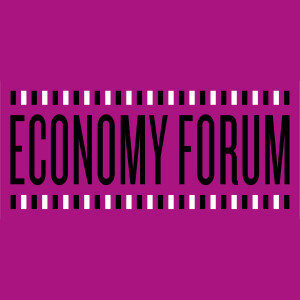Episodes

Friday Oct 22, 2021

Wednesday Aug 04, 2021
#SportscastOfIdeas: High jumps and low points - the Olympics returns at last
Wednesday Aug 04, 2021
Wednesday Aug 04, 2021
SPORTSCAST OF IDEAS: Geoff Kidder is joined by Academy of Ideas colleagues Alastair Donald and Rob Lyons with special guests David Bowden and Austin Williams to discuss everything happening in Tokyo.

Wednesday Jul 14, 2021
#SportscastOfIdeas: Defeat, division and the love of Slabhead - the Euros final
Wednesday Jul 14, 2021
Wednesday Jul 14, 2021
For our latest Sportscast of Ideas, Geoff Kidder is joined by Academy of Ideas colleagues Alastair Donald, Rob Lyons, Jacob Reynolds and Mo Lovatt to dissect *that* match - and the fallout from Italy's victory.

Thursday Jul 08, 2021
#SportscastOfIdeas: Speed, surprise and suspense - could it really be coming home?
Thursday Jul 08, 2021
Thursday Jul 08, 2021
For our latest Sportscast of Ideas, Geoff Kidder is joined by Academy of Ideas colleagues Alastair Donald and Rob Lyons, with special guest Dominic Standish zooming in from Italy.

Friday Jul 02, 2021
#SportscastOfIdeas: Penalties, Pogba and Patriotism - Euros 202
Friday Jul 02, 2021
Friday Jul 02, 2021
SPORTSCAST OF IDEAS: Geoff Kidder is joined by Academy of Ideas colleagues Alastair Donald, Rob Lyons and Jacob Reynolds, with special guest and Manchester United fan, Hilary Salt.

Friday Jun 25, 2021
#EconomyForum: Work after the pandemic - what can office workers expect?
Friday Jun 25, 2021
Friday Jun 25, 2021
Para Mullan and Hilary Salt introduce a discussion at the Academy of Ideas Economy Forum on what the post-pandemic office means for employers, employees and the wider economy.
Apart from a brief and ill-starred campaign early last autumn to get staff back to the office, for over a year workers have been told that they should work at home if they can. Yet with Covid cases, hospitalisations and deaths now back down to the level we saw at the end of last summer, it seems workers are not exactly rushing to get back to the office.
For some, there may still be the fear of commute or the fear of catching the virus whilst working in the office. For others, there may still be difficulties in getting childcare. But it is also becoming obvious that for some, the comforts of home working are much more attractive than office life. What does this say about the quality of work to date – perhaps just that it is not as great as it is made out to be and that many jobs are not ‘real’ jobs?
Employers like JPMorgan Chase and Goldman Sachs have summoned all US staff back to the office. Others, like HSBC, have adopted a hybrid form of working. Yet other big firms, like Twitter, are allowing their staff to work from home forever if they so wish. For employers, there are multiple different factors at play in encouraging staff to carry on working on the kitchen table or in the spare room: the risk of lawsuits if employees catch the virus; the potential savings on office rents; extracting longer working hours from those who no longer have to commute.
On the other hand, all that extra distance between workers may undermine the idea of pursuing collective goals, workers bouncing ideas off each other or simply picking up on office conservations – finding out things they didn’t know they needed to know. It may also be harder for managers to manage staff at a distance.
For employees, working at home may have its comforts and conveniences, but there is much to be said for a properly thought-out office environment. If the reluctance to get back to the office is driven by disenchantment with the kind of work on offer – something that seems particularly clear with the slow return of those on furlough – will employers use this as an opportunity to reassess the kind of jobs they offer?
Yet for many employees, working from home isn’t working. For all the new buzz about ‘hybrid working’ and a ‘flexible approach’, a survey conducted by the CIPD found that 47 per cent of respondents cited mental well-being as the main challenge of working from home.
In this digital era, can employers ensure that employees do not feel burnt out by work? Is it appropriate to expect employers to adopt a paternalistic approach towards their employees, taking more responsibility for people’s health and well-being? What do these new ways of working mean for the dividing line between work and home?
More broadly, does the focus on returning to work miss the real challenges for UK businesses evident before the pandemic, particularly when it comes to low productivity: a failure to automate processes or make the most of AI, the prevalence of ‘bullshit jobs’ and a stifling aversion to taking risk?
SPEAKERS
Para Mullan fellow, Chartered Institute of Personnel Development
Hilary Salt actuary; founder, First Actuarial

Wednesday Jun 23, 2021
Wednesday Jun 23, 2021
For our latest Sportscast of Ideas, Geoff Kidder is joined by Academy of Ideas colleagues Alastair Donald and Rob Lyons, and special guest Adam Rawcliffe.
They chew the fat on Scotland's departure and wonder if England will ever play exciting football. They also look at UEFA's ban on lighting up the Allianz Arena for Pride, the row over Ronaldo and Pogba moving drinks bottles and the hypocrisy of allowing 2,500 UEFA hangers-on into the UK while we all struggle to travel abroad at all.

Friday Jun 18, 2021
#SportscastOfIdeas: Booing, kilts and small nations
Friday Jun 18, 2021
Friday Jun 18, 2021
SPORTSCAST OF IDEAS: On this second 2021 Sportscast of Ideas, Geoff Kidder, Alastair Donald and Rob Lyons from the Academy of Ideas are joined by sociologist, author and Tottenham fan Frank Furedi to discuss all that's new in the world of sports, politics and upcoming tournaments.


